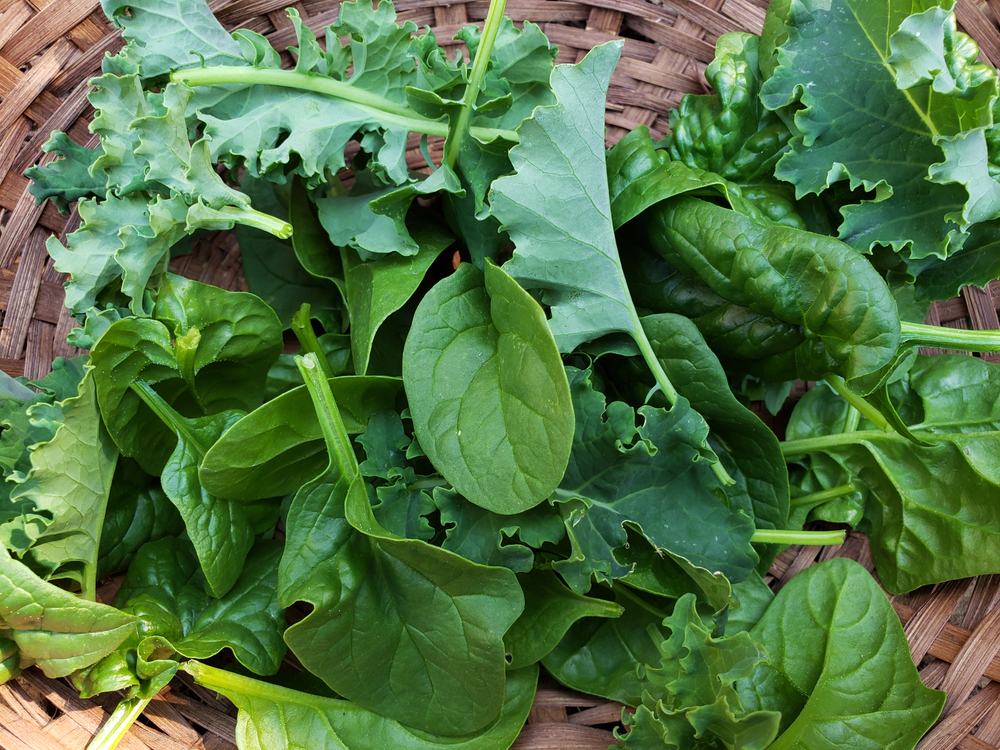15 Foods That Can Improve Your Memory and Brain Health
Eating the right foods can help boost memory, improve focus, and support long-term brain health. Nutrient-rich choices like leafy greens, berries, and healthy fats provide essential vitamins and antioxidants that protect the brain and keep it functioning at its best. Whether you want to stay sharp at work or support healthy aging, including more brain-boosting foods in your diet is a smart and natural way to improve mental performance.
This post may contain affiliate links, which helps keep this content free. Please read our disclosure for more info.
Blueberries

Blueberries are one of the most powerful brain-boosting foods thanks to their high levels of antioxidants, particularly anthocyanins. These compounds help protect the brain from oxidative stress and may reduce the effects of age-related conditions like Alzheimer’s disease or dementia. Studies have shown that regular blueberry consumption is linked to improved communication between brain cells, better memory retention, and a slower rate of cognitive decline.
In addition to their antioxidant power, blueberries may also promote neuroplasticity, the brain’s ability to form new connections. This makes them especially helpful for learning and memory. A small bowl of blueberries a few times a week is an easy and delicious way to give your brain a little extra support.
Fatty Fish (like Salmon, Mackerel, and Sardines)

Fatty fish are rich in omega-3 fatty acids, particularly EPA and DHA, which are essential for maintaining the structure and function of brain cells. DHA is a major building block of the brain and plays a crucial role in cognitive functions such as learning, memory, and emotional regulation. Regular consumption of omega-3-rich fish has been linked to slower mental decline and a reduced risk of Alzheimer’s disease.
Beyond memory enhancement, omega-3s may also help lower inflammation throughout the brain and body, which is important because chronic inflammation is linked to many brain disorders. Experts recommend eating fatty fish at least twice a week to support optimal brain health. For those who do not eat fish, omega-3 supplements or plant-based sources like flaxseeds and walnuts can also provide benefits.
Walnuts

Walnuts are the only nut significantly high in alpha-linolenic acid (ALA), a plant-based omega-3 fatty acid that supports brain function. Research suggests that walnut consumption may improve cognitive function, including memory, attention, and processing speed, especially in older adults. They also contain vitamin E and polyphenols, which are known for their neuroprotective properties.
Eating just a small handful of walnuts daily can have a noticeable impact. Their anti-inflammatory effects can help combat oxidative damage and reduce the risk of neurodegenerative diseases. Snacking on walnuts is a simple, satisfying way to give your brain a nutrient-rich boost.
Turmeric

Turmeric contains curcumin, a compound that has powerful anti-inflammatory and antioxidant properties. Curcumin is capable of crossing the blood-brain barrier, which allows it to directly benefit brain cells. Studies suggest that it can increase levels of brain-derived neurotrophic factor (BDNF), a type of growth hormone that supports the formation of new brain connections and may improve memory and mood.
Regular use of turmeric has been associated with better cognitive function and a lower risk of neurodegenerative diseases such as Alzheimer’s. Adding turmeric to meals, golden milk, or smoothies is a simple way to harness its brain-supporting benefits. For even better absorption, try pairing turmeric with black pepper, which can enhance curcumin’s bioavailability.
Broccoli

Broccoli is loaded with antioxidants and vitamin K, a nutrient that is believed to support brain health by enhancing cognitive function. Vitamin K plays a role in the production of sphingolipids, a type of fat that is abundant in brain cells. Additionally, broccoli’s high antioxidant content helps reduce inflammation and protect the brain from oxidative damage.
Consuming cruciferous vegetables like broccoli may help slow down brain aging and improve memory. It also provides compounds like glucosinolates, which may help protect the central nervous system. Steamed or roasted broccoli makes a brain-healthy side dish that pairs well with many meals.
Pumpkin Seeds

Pumpkin seeds are rich in magnesium, iron, zinc, and copper, all of which play important roles in brain function. Zinc is vital for nerve signaling, and magnesium is essential for learning and memory. Iron helps prevent brain fog and fatigue, while copper is used by the brain to control nerve signals.
These small seeds are also packed with antioxidants that protect the brain from free radical damage. A handful of roasted pumpkin seeds can serve as a great snack or salad topper that supports brain health in multiple ways. Their high nutrient density makes them a smart addition to any daily routine.
Dark Chocolate

Dark chocolate contains flavonoids, caffeine, and antioxidant ingredients that work together to enhance brain function. Flavonoids, in particular, are known to gather in the brain areas responsible for learning and memory. They help increase blood flow to the brain, which supports mental performance and alertness.
Studies have shown that eating moderate amounts of dark chocolate may improve memory and boost mood. Aim for chocolate that contains at least 70% cocoa to maximize its benefits. A small square of dark chocolate can be both a treat and a brain booster.
Oranges

Oranges are an excellent source of vitamin C, which is a powerful antioxidant that helps protect the brain from damage by free radicals. Vitamin C also plays a crucial role in preventing mental decline and supporting overall brain health. High levels of vitamin C are linked to improved focus, memory, and decision-making speed.
Eating a single medium-sized orange a day provides all the vitamin C your brain needs. You can also get similar benefits from other citrus fruits like grapefruits or lemons. Keeping vitamin C levels high can help reduce the risk of age-related cognitive issues.
Eggs

Eggs are a great source of several nutrients linked to brain health, including vitamins B6, B12, folate, and choline. Choline is used to produce acetylcholine, a neurotransmitter that helps regulate mood and memory. Adequate intake of choline has been associated with better memory performance and mental clarity.
The B vitamins in eggs also help slow cognitive decline and reduce levels of homocysteine, a compound that can harm brain cells when levels get too high. Whether scrambled, boiled, or poached, eggs make a nutrient-rich addition to your brain-boosting diet.
Green Tea

Green tea contains caffeine and L-theanine, two compounds that work together to improve brain function. While caffeine boosts alertness and mood, L-theanine promotes relaxation without drowsiness. This balance helps increase focus and reduce mental fatigue, making green tea an ideal beverage for studying or working.
Additionally, green tea is rich in antioxidants that protect the brain from oxidative stress. Drinking it regularly has been linked to reduced risk of cognitive decline and improved memory. A warm cup of green tea can be both soothing and stimulating for the brain.
Avocados

Avocados are packed with healthy monounsaturated fats that support blood flow, which is essential for delivering oxygen and nutrients to the brain. These fats help reduce blood pressure, which in turn lowers the risk of cognitive decline. Avocados also contain folate and vitamin K, two nutrients known for protecting against stroke and enhancing memory function.
In addition, they are rich in lutein, an antioxidant associated with better brain function. Including half an avocado in your breakfast or adding slices to a salad can make a big difference in your brain’s health over time. Their creamy texture and rich nutrient profile make them an easy and beneficial addition to many meals.
Beets

Beets are high in nitrates, which the body converts into nitric oxide, a compound that helps improve blood flow to the brain. Better blood circulation means more oxygen and nutrients reach brain cells, enhancing both short-term and long-term cognitive performance. This is especially helpful for aging individuals who want to maintain their mental sharpness.
Beets also contain antioxidants and anti-inflammatory properties that help reduce the risk of neurodegenerative diseases. Roasted beets, beet juice, or even beet powder can provide a natural way to support brain health. Adding them to your diet may lead to better focus and increased mental energy.
Dark Leafy Greens (like Spinach and Kale)

Dark leafy greens are rich in brain-protecting nutrients like folate, vitamin K, lutein, and beta-carotene. These vitamins and antioxidants work together to help slow down cognitive decline. Vitamin K, in particular, plays a vital role in brain cell signaling and memory enhancement.
Studies have shown that people who eat more leafy greens have brain function comparable to people 11 years younger. Whether you sauté them, blend them into smoothies, or use them in salads, greens like spinach, kale, and collards offer excellent cognitive support. A daily serving can go a long way in keeping your memory sharp.
Berries (like Strawberries, Raspberries, and Blackberries)

Besides blueberries, other berries like strawberries, raspberries, and blackberries are also loaded with flavonoids and antioxidants that support brain health. These compounds reduce inflammation, improve blood flow, and help delay memory decline. Berries have also been linked to better motor function and learning ability.
Regular berry consumption has been shown to slow down the brain’s aging process and enhance communication between brain cells. Adding a handful of mixed berries to your breakfast or snacks provides a naturally sweet and brain-friendly option. Their vibrant colors and nutrients make them one of the best fruits for cognitive wellness.
Whole Grains

Whole grains like oats, quinoa, brown rice, and whole wheat bread provide a steady source of glucose, which is the brain’s main energy fuel. Unlike refined carbs that can cause energy crashes, whole grains release glucose slowly, promoting better focus and mental endurance throughout the day. They also contain B vitamins, which are essential for brain health and reducing inflammation.
Incorporating whole grains into your meals helps maintain balanced energy levels and supports concentration and memory. Try starting your day with oatmeal or switching to brown rice in meals to improve your brain’s performance over time. They are a simple but powerful staple for cognitive health.
This article originally appeared on Avocadu.
